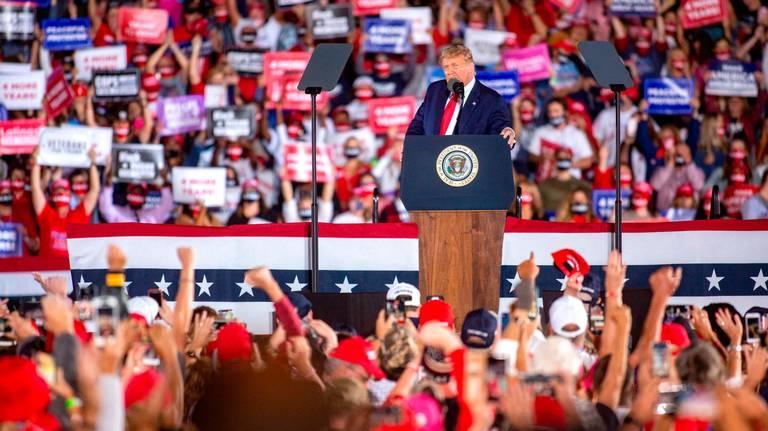
Caption
President Donald Trump arrives to his Make America Great Again campaign rally at the Middle Georgia Regional Airport in Macon earlier this month. Experts fear a similar rally in Rome on Sunday could be a COVID-19 super spreader event.
Credit: Madeleine Cook/Columbus Ledger-Enquirer

